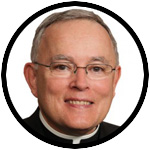
Archbishop Charles Chaput, O.F.M. Cap.
April is National Child Abuse Prevention and Awareness Month, so it’s a good time to reflect this week on this difficult but vital issue.
I arrived in Philadelphia just a few months after a tough 2011 grand jury report on clergy sexual abuse, and since then (but starting well before then), the archdiocese has worked hard to reform its victims’ outreach efforts, safety standards, handling of abuse allegations and cooperation with law enforcement. With other dioceses in Pennsylvania now under grand jury investigation, Catholics across the state are braced for more information from the past that may be hard to digest.
As I’ve stressed many times: Sexual abuse is a grave evil and a crime, and one case involving the sexual abuse of a minor is one case too many. For nearly two decades, Church leaders have worked diligently to own up to their past failures to root out abusers and to protect the innocent.
[hotblock]
As we’ve learned over time, the sexual abuse of minors is a pervasive, chronic problem that reaches into our public schools, institutions and society at large — but this in no way excuses Church leaders for their own inability to understand, or unwillingness to act forcefully against, the problem within the Church herself.
While we can’t undo this painful history, we can ensure that our archdiocesan response to child abuse is comprehensive, far-reaching and permanent, today and into the future.
In the Archdiocese of Philadelphia we have a zero-tolerance policy for clergy, lay employees and volunteers who engage in misconduct with children. Any allegation of abuse is reported immediately to law enforcement, and any substantiated allegation against a member of the clergy results in immediate removal from ministry.
All persons working with children, including volunteers, undergo background checks and child abuse clearances. All employees and volunteers must complete Safe Environment and Mandated Reporter training programs so they know how to spot potential abuse and how to alert authorities. We also take great care in providing to our children from kindergarten through 12th grade age-appropriate abuse prevention education that fosters their social and emotional development.
While numbers tell only part of the story, I do want to share some statistics that bear out our efforts:
- There are more than 280 designated Safe Environment Coordinators working in AOP parishes, schools and youth-serving ministries to ensure compliance with laws and policies.
- Approximately 110,000 adults have received training to recognize, respond to and report child abuse since 2003.
- More than 47,000 adults have received mandatory reporter training.
- More than 100,000 children receive age-appropriate abuse-prevention education yearly.
- The archdiocese has invested over $3.2 million in education and training since 2006.
[hotblock2]
Underscoring our pledge to root out anyone who presents a danger to children, this year we again tapped into the expertise of law enforcement and appointed John P. Delaney Jr. as our incoming director of investigations. John most recently served as first assistant district attorney in the Philadelphia District Attorney’s Office. He assumed his new duties with the recent retirement of Albert J. Toczydlowski, our inaugural director of investigations and a former prosecutor with more than 30 years of experience.
Leslie Davila, who directs our Office for Child and Youth Protection, also served with the district attorney’s office, where she was the assistant director of victim services and a victim-assistance coordinator. Every day she ensures that survivors receive the support they need, from counseling with spiritual or secular professionals to overcoming barriers to treatment that may include help with transportation or child care.
She also oversees all of the archdiocese’s proactive education and awareness programming, youth protection policies and compliance with laws and policies, and the Safe Environment Coordinators who are on the frontlines of our protection efforts.
The suffering of past abuse victims is a scar on the witness of the Church and one that will take years to heal. Some of the most important moments I’ve had as a bishop have been private meetings with survivors of sexual abuse. Their pain and struggle are real, and I admire their courage. As we talk, and sometimes pray together, we try to find a path toward healing.
My hope is that our time together sincerely conveys not just my personal sorrow for the wickedness done to them, but also the wholehearted dedication of our entire Church family to the safety of all those entrusted to our care.
I ask that you join me on April 29 for Blue Sunday, a national day of prayer for the victims of abuse and those who rescued them. This solemn observance will be followed by Blue Monday, April 30, when our archdiocesan community will wear blue in solidarity to demonstrate our awareness and honest, sincere efforts to root out and prevent sexual abuse in the life of our schools and parishes.


I’d be interested in what the Church has to say about physical and emotional abuse to children. I’ve tried searching the Catechism and have looked online but can only find information on sexual abuse. Thank you.